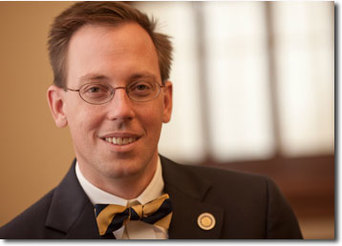I remember the first time someone challenged me on homeschooling my first son. We started that journey nearly 20 years ago and a well-meaning mom looked me squarely in the face and asked ‘what qualifies you to teach your son anything?’ (mind you, this was kindergarten!). When I picked my jaw up off the floor, I responded that I was his mom and thought I knew best for him. It wasn’t that I was anti public school (my husband is a public school teacher so I honestly do see the benefits of public school, but I also see, first hand, some of the pitfalls of public schooling), but we had just decided to give homeschooling a try. In our early years, I really loved just reading with my kids. And that would be my first piece of advice to any young mom. Read, read, read! Go to the library and get stacks of books (just don’t lose them!). Read aloud, have your children spend time just looking and musing over books, get books on tape and have them playing in the car. Stories are wonderful and capture your child’s imagination. When they have finished reading, have them write or draw about what they have read (just a sentence is sufficient) and have them retell the story back to you. All of this is homeschooling!!!
Another reason that we chose homeschooling for our family was that we are a musical family. We had our kids in piano lessons, guitar lessons, drum lessons, voice lessons and now flute lessons. Our children didn’t necessarily love practicing, but they loved tinkering with their instrument or writing music. Homeschooling allows them to break away from a difficult book or assignment and they can play music. One of our greatest loves as a family is that we play music together at our church and we love to sing together. This was a true gift from God and one that may not have materialized in the same way had our children gone to public school and used their musical talent in a band or orchestra. Maybe your family is particularly interested in math and science and LOVES to experiment and solve problems at home. We have friends right up the road who are math/science geniuses and their children have had time to pursue these avenues and have been able to invent/solve problems and have patents on some of their work that will help our community and world. Again, probably an unintended goal in homeschooling for this family, but certainly one they love to celebrate.
Some folks may homeschool because of a sport and while that was a reason for homeschooling my gymnast daughter, it certainly wasn’t our main reason. She loved to compete and homeschooling made that much more possible for our large family. Once she ‘retired’ from this grueling sport, she gave more of her time to academics and music.
Interestingly, one of those ‘hind sight’ reasons for homeschooling is that my kids have learned how to be in relationships with people like I never learned as a teenager. Girl/boy drama has been a non-issue with us and for that, I am SO grateful. I’m not saying that homeschooling is the only way to accomplish this, as the home atmosphere is where these expectations should be set and I do see positive relationships in situations other than homeschooling. In our co-op, the students tend to move in ‘packs’ and have much more of a group dating/socializing mentality. The boys and girls become such good friends and enjoy just being together. I have loved that my kids have good guy and girl friends and have not really sensed expectations that they should be dating or pairing off. This is one of those unintended benefits, but I will take it!
So, why do I homeschool? The reasons are many. I didn’t even mention that one of my sons had learning issues and needed much extra time from me. I was able to read more, write more, go to therapy more, etc. than I would have if he had been in public school. For each child, I would have to give different reasons for homeschooling and for each year, I might have given different reasons for homeschooling. And that would have to be how I sum this up. Consider each child, consider each year. One child at a time…one year at a time.
This is a journey. Some days you will cry because of how hard it is. Some days will take your breath away as your child reads for the first time or makes some sort of cool discovery. It is a journey that is WELL worth your effort, WELL worth setting your career aside, WELL worth the gray hairs and WELL worth the incredible amount of work. Won’t you join me in the journey?

 RSS Feed
RSS Feed
